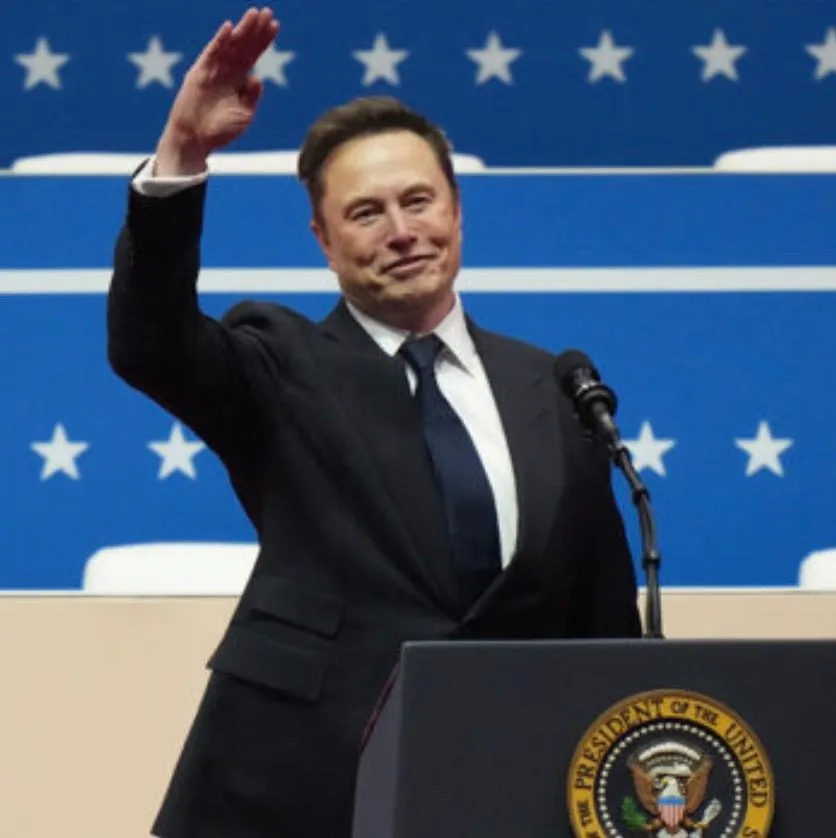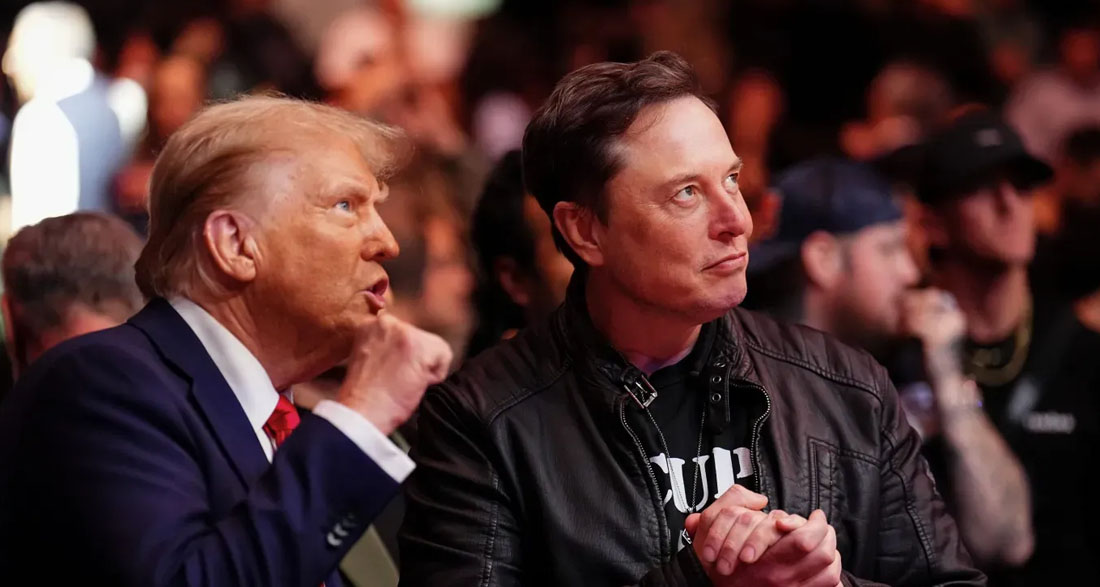Elon Musk’s Gesture at Trump’s Inauguration Sparks Controversy: Was It a Nazi Salute?
The inauguration of Donald Trump for his second term as President on January 20, 2025, was an event filled with promise and spectacle, drawing the attention of people from all over the world.
But amid all the grand moments, one small gesture by Elon Musk, the billionaire CEO of Tesla and SpaceX, quickly became the center of a heated controversy. Some critics accused Musk of making a Nazi salute, and the online debate that followed has stirred up strong opinions across the globe.
Musk’s Speech and Gesture That Sparked Backlash
On the day of the inauguration, Musk was not just attending the event as an observer. Before the ceremony, he gave a passionate speech at the Capital One Arena in Washington, D.C., during an event leading up to the Inauguration Day parade.
Musk spoke about the future of humanity and how SpaceX plans to make history with the first human mission to Mars. He described how Americans would one day plant their flag on the “Red Planet” as part of humanity’s greatest achievements.
His words were inspiring, filled with the optimism and excitement of space exploration. But it was a gesture at the end of his speech that quickly sparked controversy.
Musk raised his right arm and struck his chest, making a bold, dramatic movement. He then expressed gratitude, saying, “Thank you for making it happen. Thank you, my heart goes out to you,” before turning toward the crowd and repeating the same gesture—this time, directing it toward the American flag.
The Backlash: Was It a Nazi Salute?

While Musk was likely trying to express his enthusiasm, the gesture did not sit well with everyone. Many people immediately compared it to the historical salutes associated with authoritarian regimes, particularly the Nazi salute.
The online backlash was swift, and soon, people were accusing Musk of mimicking a Nazi salute. Some users on the social media platform X (formerly known as Twitter) described Musk’s actions as a blatant “Sieg Heil” salute, while others found it to be an inappropriate and troubling display of enthusiasm.
CNN anchor Kasie Hunt was one of the first public figures to comment on the incident, saying, “It’s not something you typically see at American rallies,” and noting that it closely resembled gestures from the past with very negative connotations. The criticism continued to pour in, with people demanding an explanation for Musk’s actions.
One user on X wrote, “It’s a Nazi salute, no doubt about it. This is disturbing.” Another commented, “Why is no one calling this what it is? A salute that resembles a Nazi salute. We can’t ignore the history behind such gestures.”
The Anti-Defamation League Defends Musk
In response to the backlash, the Anti-Defamation League (ADL), an organization that works to combat antisemitism and hate, released a statement defending Musk.
They suggested that Musk’s gesture was likely an accidental, enthusiastic movement rather than an intentional Nazi salute. The ADL said, “It seems that Musk made an enthusiastic yet clumsy movement, not a Nazi salute. However, we understand why people may feel uneasy about it.”
The ADL’s statement tried to calm the situation, reminding people that emotions were running high, especially at such a politically charged moment. “This is a sensitive moment. Emotions are high, and tensions are running deep. Social media often exacerbates these divisions,” the organization continued. “We urge everyone to exercise patience and give one another the benefit of the doubt as we navigate these times.”
Alexandria Ocasio-Cortez Joins the Criticism
Not everyone was convinced by the ADL’s defense. Congresswoman Alexandria Ocasio-Cortez, a vocal critic of many of Musk’s political actions, came forward with her own condemnation. She stated on social media, “To be clear, you are defending a gesture that looks unmistakably like a Nazi salute, repeated intentionally for emphasis. This undermines your credibility as an authoritative voice against hate.”
Ocasio-Cortez’s strong words only fueled the online debate. Many supporters of Musk took issue with her response, calling it an overreaction. But Musk himself didn’t back down. In fact, he responded to the criticism by dismissing Ocasio-Cortez’s comments, calling her statements “completely lost.” His response added even more fuel to the fire, and the debate raged on.
Musk’s Dismissive Response and the Growing Debate
As the online controversy grew, Musk took to X again to share his thoughts on the situation. He responded to those criticizing him with a simple, dismissive “yawn” emoji, as if to downplay the seriousness of the accusations. Musk further added, “Honestly, they need to come up with better tactics. The ‘everyone is Hitler’ argument is so outdated.”
This comment divided people even more. Some agreed with Musk, saying that the term “Nazi” was being overused and lost its impact when applied to every small misstep. One user posted, “Can we retire this narrative already? Calling everyone a Nazi has lost its impact. It’s overused, ineffective, and honestly, people have stopped caring. You’ve cried wolf too many times.”
Others, however, were still deeply uncomfortable with Musk’s gesture, and they criticized him for brushing off the seriousness of the accusations.
The Bigger Picture: The Role of Social Media in Amplifying Controversies
This incident has reignited conversations about the influence of public figures and the power of social media in shaping public opinion. For some, Musk’s gesture was an innocent mistake, a poorly executed movement that should not be blown out of proportion. But for others, it was a symbol of something darker, one that echoed troubling moments in history.
Social media, as usual, amplified the controversy, creating a platform for widespread debates and dividing opinions even further. While Musk’s defenders insist that he should not be judged so harshly, others see his actions as indicative of deeper societal issues and the role of figures like Musk in fueling political polarization.
What Do You Think?
As this controversy continues to unfold, the question remains: was Elon Musk’s gesture an innocent mistake, or did it reveal something more troubling? With reactions ranging from dismissive to deeply concerned, it’s clear that this incident has sparked a much larger conversation about symbolism, public figures, and the influence of social media in today’s polarized world.
What do you think of the situation? Do you agree with Musk’s response, or do you think his gesture was inappropriate? Share your thoughts in the comments below!

